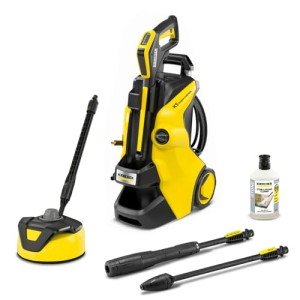A Comprehensive Guide to Buying Power Tools: What You Need to Know
Power tools have actually transformed the method we carry out various tasks, making them faster, much easier, and more effective. Whether you are a professional specialist, a DIY enthusiast, or a house owner looking to deal with tasks around your house, comprehending how to select the ideal power tools is essential. This post serves as a detailed guide to buying power tools, discussing types, functions to think about, and providing practical ideas to guarantee an effective purchase.
Kinds Of Power Tools
Power tools can be classified into numerous types based upon their functions and applications. Here's a breakdown of the most typical types:
| Type of Power Tool | Description | Common Applications |
|---|---|---|
| Drills | Used for drilling holes in numerous products. | Woodworking, construction. |
| Saws | Vital for cutting wood, metal, or plastic. | Carpentry, metalwork. |
| Sanders | Smooths surfaces by eliminating product. | Finishing wood products. |
| Grinders | Ideal for cutting, grinding, and polishing products. | Metalwork, masonry. |
| Effect Wrenches | Supplies high torque output for fastening. | Automotive repairs, construction. |
| Random Orbit Sanders | Integrates rotary and orbital motion for a smooth surface. | Great woodworking surfaces. |
| Router | Models edges and hollow out areas in wood. | Woodworking, cabinets. |
| Nail Guns | Accelerate the procedure of attaching materials together. | Framing, roof. |
Elements to Consider When Buying Power Tools
Choosing the right power tool includes more than simply selecting the most popular design. Here are some necessary elements to think about:
Type of Project
- Identify the particular tasks you will be performing. go now are versatile, while others are more specialized.
Source of power
- Choose in between corded and cordless tools:
- Corded Tools: Typically offer more power and don't require battery changes however have limited movement.
- Cordless Tools: Offer the benefit of mobility however may have lowered power and require battery maintenance.
Tool Quality
- Examine brand name track record, build quality, and materials utilized. Investing in long lasting tools might conserve money in the long run.
Ergonomics
- Search for tools that are comfy to hold and run, particularly if you'll be using them for extended periods.
Safety Features
- Inspect for functions like automatic shut-off, security guards, and redundant controls to ensure safe operation.
Warranty and Customer Support
- Think about the producer's service warranty and the schedule of consumer support. Reliable guarantees can secure your investment.
Budget
- Establish a spending plan before shopping. Power tools can vary considerably in cost, so it's essential to find a balance between quality and cost.
Popular Brands to Consider
When shopping for power tools, it's advantageous to familiarize yourself with brand names known for their quality and dependability:
- DeWalt: Renowned for resilient and high-performance tools.
- Bosch: Offers a large range of innovative power tools.
- Makita: Known for lightweight and cordless alternatives.
- Milwaukee: Features high-torque tools designed for heavy-duty applications.
- Ryobi: Provides economical tools without compromising quality.
Tips for Buying Power Tools
To assist improve the purchasing process, think about the following ideas:
Do Your Research
- Evaluation online resources, comparison websites, and client reviews to make informed choices.
See Local Hardware Stores
- Experience the tools personally. Hold them, check their weight, and gauge their convenience level.
Search For Kit Deals
- Lots of manufacturers use bundled tool kits, typically at a discount rate, which can be an economical method to acquire numerous tools.
Keep an Eye on Sales
- Check for seasonal sales, clearance occasions, or marketing deals to get the very best deals.
Buy Accessories
- Do not forget to spending plan for needed devices like drill bits, blades, or safety equipment, as these can boost the energy of your power tools.
Frequently Asked Questions (FAQs)
1. What are the necessary power tools for home improvement?
The most frequently recommended important tools include a drill, circular saw, jigsaw, and sander. These tools can deal with a variety of tasks from simple repairs to larger tasks.
2. Should I buy corded or cordless power tools?
This depends upon your needs. Cordless tools use versatility and mobility, making them perfect for outdoor and remote tasks. Corded tools typically offer more power and are suited for high-intensity tasks or longer tasks.
3. How do I maintain my power tools?
Regular cleansing, correct storage, and lubrication of moving parts are essential for preserving the longevity and efficiency of power tools. Constantly follow the maker's standards for upkeep and care.
4. Can I utilize power tools without experience?
While some power tools are easy to use and developed for novices, it's vital to understand their operation through directions or tutorials. Think about registering in a workshop or training session for hands-on experience.
5. What safety precautions should I take when utilizing power tools?
Always wear appropriate PPE (individual protective equipment) such as goggles, gloves, and ear security. Ensure your work space is clear and prevent using loose clothes or precious jewelry that can end up being knotted in the machinery.
Purchasing power tools can be an overwhelming task, especially for those new to DIY projects or building and construction. Nevertheless, by comprehending the various types of tools, considering crucial aspects, and following professional suggestions, customers can make informed and rewarding purchases. The right power tools not just enhance effectiveness and productivity but also enable users to total tasks with precision and self-confidence. As technology continues to advance, remaining informed will make sure that you get the most out of your financial investments in power tools.

